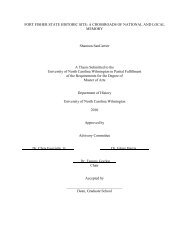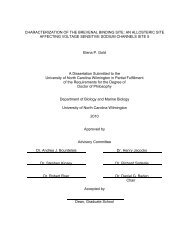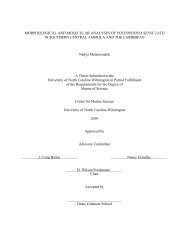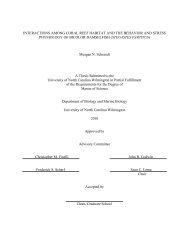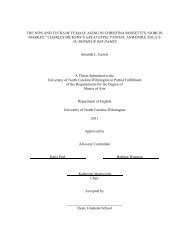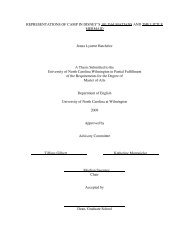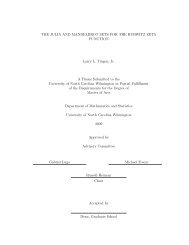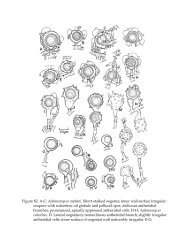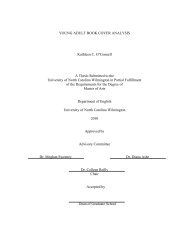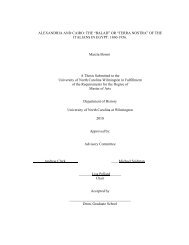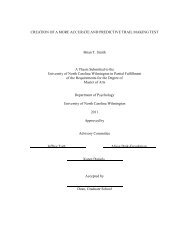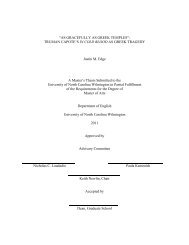AN AUGURY OF REVOLUTION: THE IRANIAN STUDENT ...
AN AUGURY OF REVOLUTION: THE IRANIAN STUDENT ...
AN AUGURY OF REVOLUTION: THE IRANIAN STUDENT ...
Create successful ePaper yourself
Turn your PDF publications into a flip-book with our unique Google optimized e-Paper software.
etaliatory response to the hostages in Iran. President Carter ordered all Iranian students in the<br />
United States to report to the INS to have their visas checked. 540<br />
Therefore, Washington’s inability to recognize the protests of Iranian students in the<br />
1960s had drastic consequences for American foreign policy, the shah’s regime, and the situation<br />
of Iranian students in the U.S by the 1970s. While the American policymakers dismissed the<br />
calls for reform by Iranian students in the 1960s and early 1970s, the students clearly reflected<br />
the growing unrest within Iran. Because they represented such a large segment of Iranian society<br />
and were the only group that could actively speak their minds, their opinions were more valuable<br />
and representative of the population than U.S. policymakers tended to believe. Also, the impact<br />
that they could have on U.S. – Iranian relations, which was made apparent with the outbreak of<br />
the Iranian Revolution, was greatly underestimated. Many Iranian students abroad were<br />
determined to bring about political change in Iran, and were vocal in their opposition to the shah<br />
from the United States and Western Europe. While Iranian students lived in democratic<br />
societies, their expectations grew along with their radicalism. Three of Khomeini’s more liberal<br />
associates during the revolutionary period were foreign educated. These included Abol Hassan<br />
Bani-Sadr who was educated in Paris, Ibrahim Yazdi from Texas, and Sadeq Qotbzadeh who<br />
attended Georgetown University and was a large part of the student movement in the United<br />
States in the early 1960s. 541<br />
In 1982 the ISAUS assessed the situation in the Islamic Republic of Iran, and concluded<br />
that they were proud of the “Iranian people’s victory over US imperialism…” and they believed<br />
540 “Requirements for Maintenance of Status for Non-Immigrant Students from Iran,” DNSA, Iran Revolution, 13<br />
November 1979, Unclassified, Law, IR03481; “Appeals Court Upholds U.S. Ban on Iranian Protests Near White<br />
House,” NYT, 20 November 1979, p. A13. An appeals court ultimately upheld President Carter’s order that all<br />
Iranians in the United States report to the INS to have their visas checked as a result of the hostage taking at the<br />
American embassy in Tehran. Refer to David E. Rosenbaum, “Court Backs Carter: Judges Say Government Has<br />
Right to Make Immigration Checks,” NYT, 12 December 1979, p. A1.<br />
541 Keddie, Iran and the Muslim World, 69; Ledeen and Lewis, Debacle, 29-30.<br />
127



